10 Wild Habanero Spice Pairings That Will Blow Your Taste Buds Away (Literally)
Welcome to the fiery frontier of flavor town! If you’ve ever felt like your food needed just a little more... oomph, then look no further than the habanero pepper. Known for its blistering heat and citrusy undertones, habanero is not just for hot sauce lovers — it's a secret weapon in the kitchen when paired with the right ingredients. In this post, we’ll dive into some innovative and surprisingly delicious pairings that will make your next meal unforgettable. Buckle up — this is going to be spicy.
Table of Contents
- What Makes Habanero So Special?
- Top 10 Habanero Spice Pairings
- Tips for Handling Habanero Like a Pro
- When Things Go Wrong: Cooling Down After the Burn
- Final Thoughts: Fire Up Your Flavors!
What Makes Habanero So Special?
Habanero isn't just another chili pepper — it's a legend. Ranking between 100,000 to 350,000 on the Scoville scale, it’s one spicy customer. But what really sets it apart from its cousins (like jalapeños or serranos) is its unique flavor profile. It brings the heat, sure, but also a bright, fruity, almost tropical note that pairs well with both sweet and savory ingredients.

Top 10 Habanero Spice Pairings
Ready to turn up the heat? Here are ten daring combinations that bring out the best in habanero while balancing its intensity with other flavors:
- Pineapple & Lime – The sweetness of pineapple and the zesty punch of lime cut through habanero’s fire, creating a tropical explosion.
- Dark Chocolate – Yes, seriously. The bitterness and richness of dark chocolate contrast beautifully with habanero’s sharp heat.
- Mango & Coconut Milk – This combo delivers creamy sweetness to soothe the spiciness while letting habanero shine through.
- Cilantro & Garlic – A classic duo that enhances the earthiness of the pepper and balances its brightness.
- Tamarind & Fish Sauce – An umami bomb with tangy tamarind and salty fish sauce, perfect for marinades or glazes.
- Bourbon – Smoky, slightly sweet bourbon tones down the heat and adds depth to sauces or desserts.
- Peaches – Juicy peaches and habanero? Absolutely. The fruitiness softens the blow while adding layers of flavor.
- Caramelized Onions – Sweet, slow-cooked onions balance the pepper’s heat and add body to salsas or stews.
- Rum (Especially Dark Varieties) – Rum’s molasses-like richness complements habanero’s boldness, making for killer cocktails and sauces.
- Lime Yogurt – Creamy yogurt cools things off, while lime adds brightness — ideal for dips or garnishes.
| Spice Pairing | Flavor Profile | Best Used In |
|---|---|---|
| Pineapple + Lime | Tropical, sweet, tangy | Salsas, smoothies, grilled meats |
| Dark Chocolate | Rich, bitter, deep | Chocolates, brownies, moles |
| Mango + Coconut Milk | Fruity, creamy | Curries, sorbets, drinks |
| Cilantro + Garlic | Herby, savory | Salsas, tacos, marinades |
| Bourbon | Smoky, sweet | Cocktails, glazes, sauces |
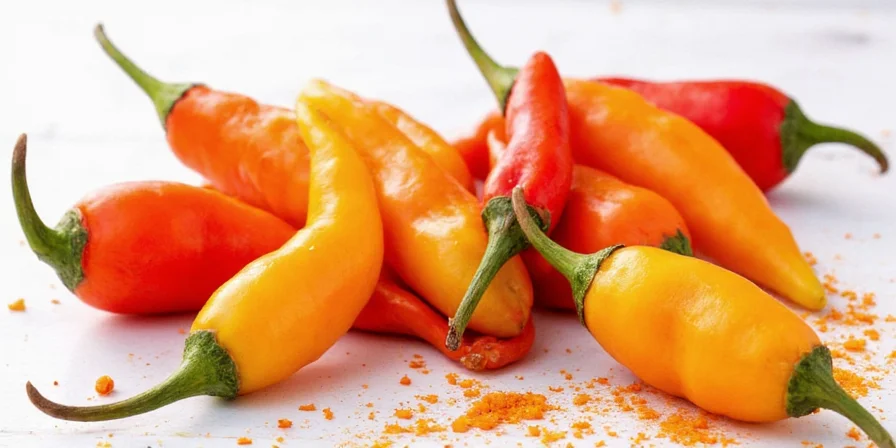
Tips for Handling Habanero Like a Pro
You wouldn’t wrestle a tiger without gloves, so don’t mess with habaneros bare-handed either. Here are some pro tips to keep yourself safe and sane while working with this powerhouse pepper:
- Always wear gloves — Seriously, even if you think you’re tough. Capsaicin is a sneaky little devil that can get everywhere.
- Avoid touching your face — Especially your eyes. Trust me, the regret is real.
- Use a sharp knife — Dull knives crush the pepper, releasing more capsaicin into the air.
- Toast them lightly — Enhances flavor without cranking up the heat too much.
- Seeds = More Heat — Remove them if you want less burn but still love the flavor.
- Blend with dairy or acid — Milk, yogurt, sour cream, or citrus juice help mellow out the heat.
- Keep a backup plan — Have milk, bread, or rice nearby in case your dish goes full Chernobyl on your tongue.
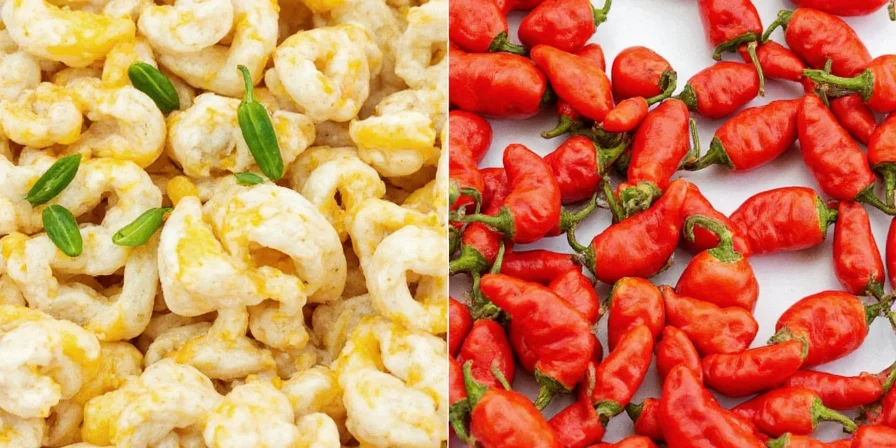
When Things Go Wrong: Cooling Down After the Burn
We've all been there: One bite too many, and suddenly your mouth feels like it's hosting a dragon roast. Don’t panic! Here’s how to survive the inferno:
- Milk, Milk, and More Milk — Casein in milk binds with capsaicin and washes it away faster than water ever could.
- Eat Some Bread — Not the healthiest solution, but it helps absorb some of the oil-based heat.
- Yogurt or Sour Cream — These dairy-based coolants do double duty by soothing your mouth and enhancing flavor in dishes.
- Don’t Reach for Water — It spreads the capsaicin around and makes the burn worse. Save the hydration for after the crisis.
- Try Sugar — Surprisingly effective at neutralizing the sting, especially if you're short on dairy options.
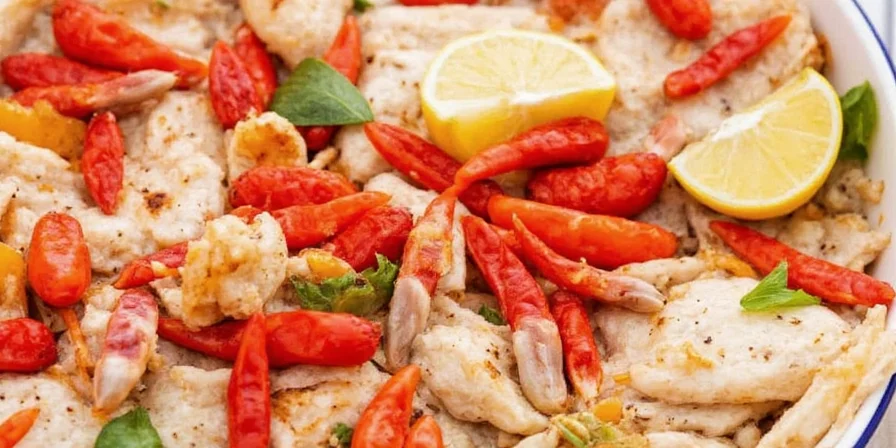
Final Thoughts: Fire Up Your Flavors!
The habanero pepper is more than just a spice-lover’s trophy; it’s a culinary tool that can elevate your cooking from basic to brilliant when used wisely. Whether you're grilling up some pineapple-habanero skewers, whipping up a mango-lime salsa, or experimenting with chocolate-habanero truffles, there's a world of flavor waiting for you beyond the burn.
So go ahead — embrace the heat. Let habanero surprise you, challenge you, and ultimately make every bite a little more exciting. And remember: With great spice comes great responsibility… and maybe a glass of milk nearby.
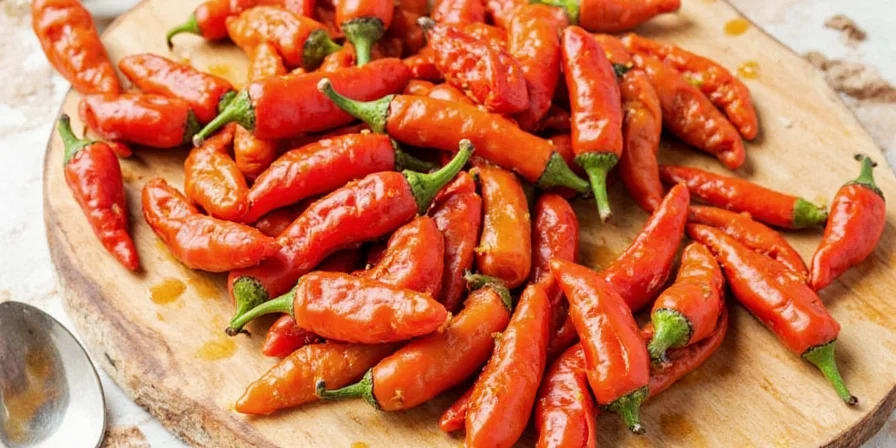

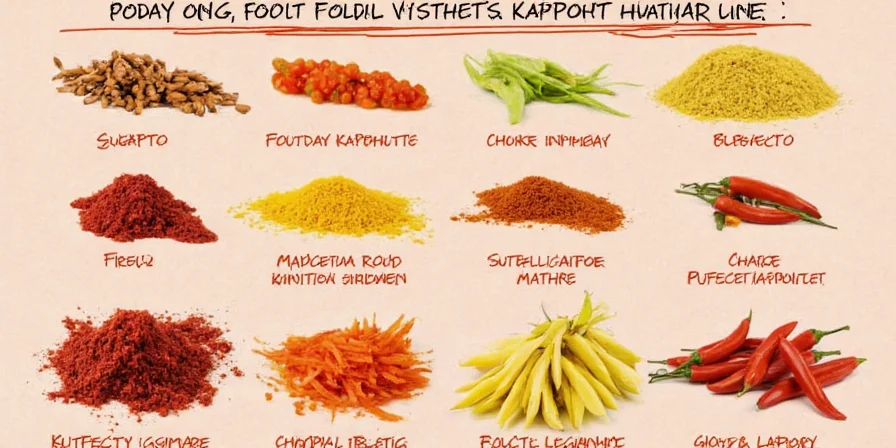









 浙公网安备
33010002000092号
浙公网安备
33010002000092号 浙B2-20120091-4
浙B2-20120091-4